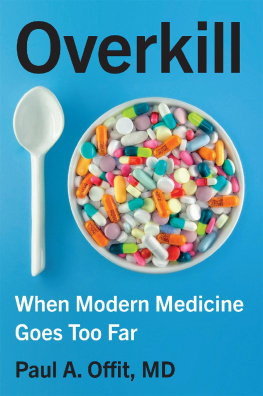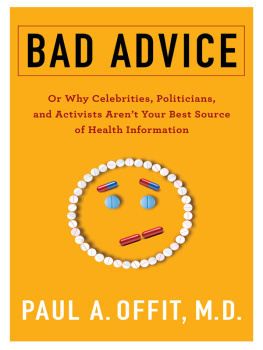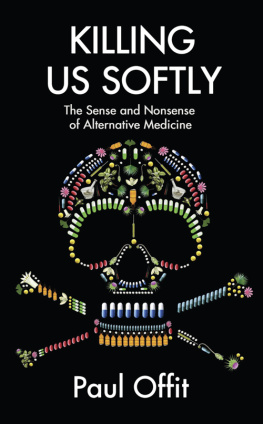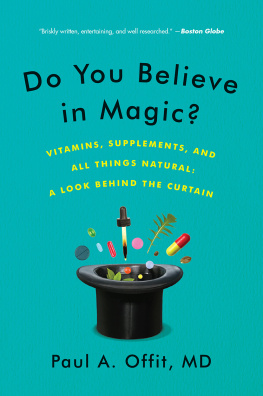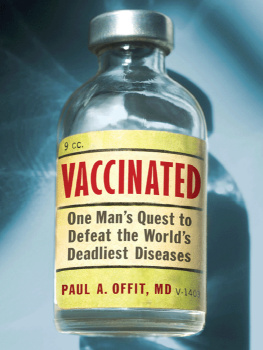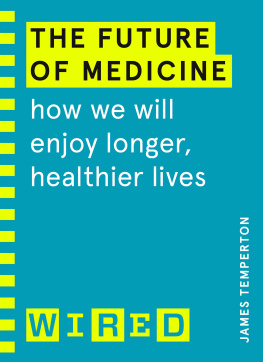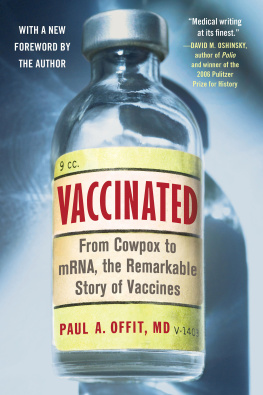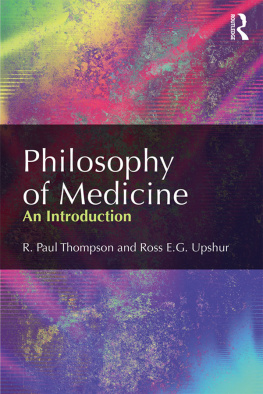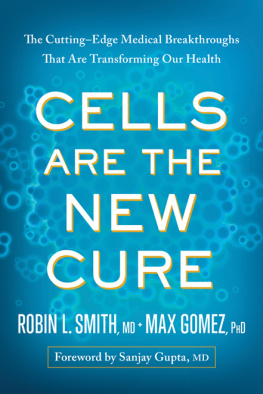

It aint what you dont know that gets you into trouble. Its what you know for sure that just aint so. Mark Twain
Contents
I n 1740, George Anson, the First Lord of the Admiralty of the British Royal Navy, sailed around the world. When he launched, 961 sailors climbed aboard his ships. When he finished, 335 got off. The rest had died from scurvy.
Ansons expedition wasnt unique. Scurvy, a disease known since ancient times, often afflicted sailors on long journeys. Symptoms included bleeding gums, ready bruising, hemorrhages, swollen legs, weakness, apathy, shortness of breath, fatigue, joint pain, slow-healing wounds, and eventually death from heart disease.
Although everyone knew about scurvy, no one knew what caused it or how to treat it. Seven years after Ansons expedition, all that would change. Or, at least, it should have changed. Although more than a century would pass before scientists proved that scurvy is caused by a deficiency of vitamin C, one man figured out how to treat it before vitamins were discovered. Unfortunately, his findings were ignored.
In March 1747, a young Scottish surgeon named James Lind climbed aboard the HMS Salisbury , a fifty-gun ship charged with blocking the English Channel. At the time, Britain was embroiled in the War of the Austrian Succession against France and Spain. Two months after leaving port, with many sailors belowdecks suffering from scurvy, Lind performed what many consider the first clinical study. He split twelve sailors into six groups of two men, offering each group one of the following remedies: a quart of cider every day; two spoonfuls of vinegar three times a day; half a pint of seawater every day; twenty-five drops of elixir of vitriol (i.e., diluted sulfuric acid) three times a day; a paste made of garlic, mustard seed, dried radish root, and gum myrrh three times a day; or two lemons and one orange every day.
Six years later, in 1753, Lind published his results. Titled Treatise of the Scurvy , it was dedicated to Lord Anson. Only one group had benefited. The most sudden and visible good effects were perceived from the use of oranges and lemons, he wrote. One of those who had taken them, being at the end of six days fit for duty. The other... was appointed to attend to the rest of the sick. Although Lind didnt know why citrus fruits had cured scurvy, he clearly had shown that they had.
No one paid attention to Linds breakthrough observation. Doctors continued to treat scurvy with elixir of vitriol, even though Lind had shown it was useless. During the next six years, among the 176,000 sailors in the British fleet, 18,500 died from scurvyall because doctors had continued to treat them with medicines that had no chance of working. Indeed, more sailors died from scurvy than were killed in battle.
In 1794, about forty years after James Linds publication, Rear Admiral Alan Gardner insisted on bringing large quantities of lemons aboard a twenty-three-week nonstop voyage to India. No one got scurvy. The British Admiralty could ignore Linds study no longer. In May 1796, the Sick and Hurt Board in Britain, which recently had added two naval surgeons well acquainted with Linds findings, agreed to supply all naval ships on foreign service with lemon juice. Three years later, the board extended its recommendation to all British ships. Scurvy disappeared from the British Royal Navy.
Because the navy could now block French ports for years at a time, sea power won the Napoleonic Wars. Of all the means which defeated Napoleon, noted one observer, lemon juice and the carronade gun were the two most important.
Why did it take so long for doctors to accept James Linds findings? At the time, health officials estimated that a cure for scurvy would have doubled the efficiency of the British fleet. Surely, no admiral would have turned down such a prospect. So, why did they? Given that this was one of the most remarkable examples of medical denialism in history, researchers have offered several theories:
- Theory 1: The description of Linds experiment on the HMS Salisbury was only 4 pages long, a problem when the Treatise itself was 450 pages long. Its easy to see how Linds critical finding could have been missed.
- Theory 2: Lind knew that lemons and oranges worked; he just didnt know why. He assumed that the fruits were treating a digestive disorder, not a vitamin deficiency. In fairness, it wasnt until 1912, when English biochemist Frederick Hopkins published his paper on accessory food factors, that scientists had any idea what vitamins were or that they could be obtained only from food. (Of interest, humans are among a group of only a few animals, including guinea pigs and monkeys, that cant synthesize their own vitamin C. Thats why sailors who ate rats on the ship were less likely to get scurvy: rats are a rich source of the vitamin.)
- Theory 3: Lind was a poor advocate for his findings. The province has been mine to deliver precepts, he wrote. The power is in others to execute. Trusting the British Admiralty to be immediately compelled by his scientific study was, at the very least, nave.
- Theory 4: Its hard to counter established treatments and biases. It is no easy matter to root out old prejudices, wrote Lind, or to overturn opinions established by time, custom, and great authorities.
James Lind died on July 13, 1794, one year before the Admiralty required citrus fruits for British ships. Although he may have been ignored in his time, Linds work has been immortalized on the official crest of the British Institute of Naval Medicine, which depicts a lemon tree sitting atop an ocean.
T oday, we look back at the story of James Lind and shake our heads. Surely, when confronted with clear, unambiguous evidence that a treatment works or doesnt work, we embrace the findings. What most people would be surprised to learn, however, is that, in far too many instances, we do not. In the pages that follow, I will describe situations in which clinicians have ignored a wealth of evidence and continued to prescribe medicines, or perform surgeries, or promote cancer screening programs, that have been shown to do more harm than good. Sadly, in certain situations, we are still figuratively offering elixir of vitriol, treatments or preventives that have been shown again and again to be at best useless and at worst dangerous.
In the epilogue, well talk about why this is happening and what can be done to stop it. The good news is that theres a way out of this.
T hroughout this book, many studies will be described. Such reading can be daunting or, worse, boring. But if youre going to be convinced that certain well-established, accepted practices might be wrong, the data must do the convincing. Otherwise, Id just be asking you to trust me. And while medical gurus such as Mehmet Oz and Deepak Chopra or celebrities such as Jenny McCarthy and Gwyneth Paltrow can probably get away with that, I cant. In the end, you shouldnt trust me; you should trust high-quality, reproducible scientific studies that are performed in well-respected academic centers and published in prestigious medical journals.
Q uestion: Why is it that every warm- and cold-blooded animal that has walked, flown, swum, or crawled on the face of the earth for the past 600 million years has the capacity to make fever? Isnt it possible that fever is an adaptive response to the environment, allowing us to survive, rather than a maladaptive response causing unnecessary suffering? And isnt it then possible that reducing fever with medicines such as aspirin, acetaminophen (Tylenol), or ibuprofen (Motrin, Advil) might do more harm than good?
Next page
